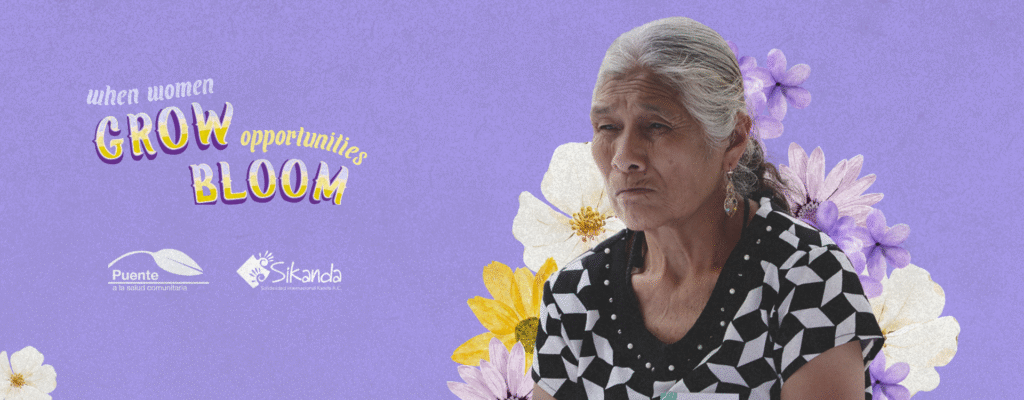🌿Bridging Distances, Cultivating Change: Women Leading Resilience in Oaxaca
In the rugged regions of Mixteca and Sierra Sur, these inequalities are magnified by poverty, isolation, and the lack of access to basic services. Yet amid these difficulties, women continue to lead, cultivating food, families, and community resilience.
That’s why Puente a la Salud Comunitaria and SiKandahave joined forces: to strengthen women’s collective capacities and promote fairer, more resilient local economies across Oaxaca’s most excluded regions.

A Joint Response to Systemic Challenges
Puente was founded on the principle that rural families have the right to nutritional understanding and to access healthy, culturally appropriate foods; and believing that agroecology, using appropriate technologies and biofertilizers, combined with an abundance of ancestral knowledge, is a way to replenish the soil, combat climate change and grow a beautiful and nutritious grain.
For its part, SiKanda contributes more than eight years of experience successfully designing and implementing projects focused on women’s entrepreneurship, solidarity networks, community leadership, and advocacy for women’s rights and gender equality.
The partnership with SiKanda builds on this foundation, extending support to women in the most marginalized regions of Oaxaca, areas that are often left behind due to their remoteness and limited access to infrastructure.
Bringing Training and Opportunity Closer to Women
The Mixteca and Sierra Sur regions are home to 10 of the 12 poorest municipalities in the state. Accessing essential services or training programs often means traveling long hours through mountainous terrain. For women of these regions accessing essential services or training programs often means traveling long hours through mountainous terrain: a 200 km distance can easily turn injto a six-hour journey to the capital for what might be a two-day workshop.
For many women, who balance household care, agricultural work, and community service, this is simply impossible. So instead of asking women to come to us, we go to them, closing not only the physical distance but also the symbolic gap between women and their dreams.
“My small plantation is an hour and a half walk uphill from downtown, each way. Now, due to our age, we struggle, we get tired more easily. But we’re still pushing forward because this is the only thing we have to survive…Right now, I’m alone, and I really need helpers, including other ladies, because I can’t do it by myself. Hauling the coffee out is quite hard, it’s too heavy, and the journey is uphill to reach the main road.” Isabel– Coffee Producer from Yucuhiti, in the Mixtec Region.
Climate Resilience, Led by Women
The Mixteca and Sierra Sur regions are rich in biodiversity and ideal for growing high-quality coffee. But these same lands face growing environmental pressures — deforestation, soil erosion, and increasingly severe weather events.
In 2023, Hurricane Agatha devastated coffee farms in the Sierra Sur, cutting production by up to 90% in some areas, Meanwhile, in the highlands of Mixteca, the arrival of diseases and pests such as the berry borer beetle and the coffee leaf rust, are constant problems faced by producers.
This has been the case for Isabel:
“The young people…many of them migrated and left. Those of us who remained are their parents, carrying on the work. A few have stayed, but there are no young people left, they all emigrated out of necessity. When coffee prices are good, we manage to do well, but when they’re bad, we can’t even cover our costs.”
“Right now, our problem with coffee is that it gets infested, first with the coffee borer beetle and then with the coffee leaf miner. All our coffee was ruined, and when we cut it and tried to pulp it, there were no beans left, just pure rubble, pure waste… Our two-year harvest is gone; it attacked us. But where there are large plants, everything has been destroyed. We are planting only new plants again, but we are suffering”.
Through joint efforts, Puente and SiKanda are now providing training in sustainability, agroecology, and entrepreneurship to help farmers — especially women — rebuild their livelihoods and strengthen local food systems.
These programs don’t just restore production; they foster leadership, solidarity, and autonomy.
By working together, we’re helping ensure that the future of Oaxaca’s rural regions is equitable, sustainable, and led by women.



